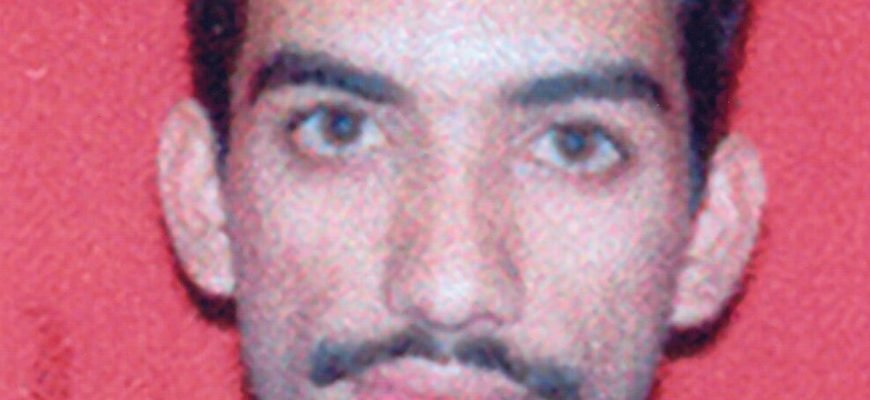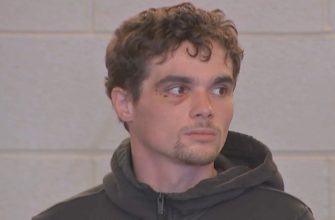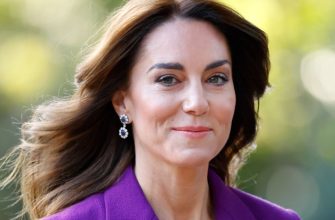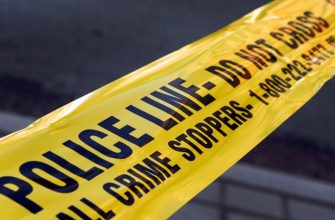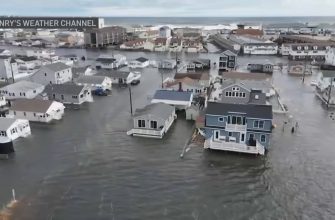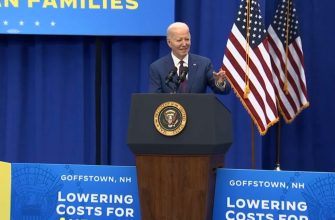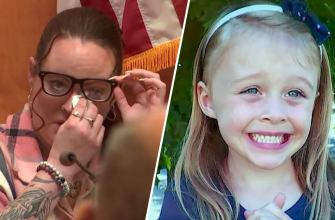10-minute read
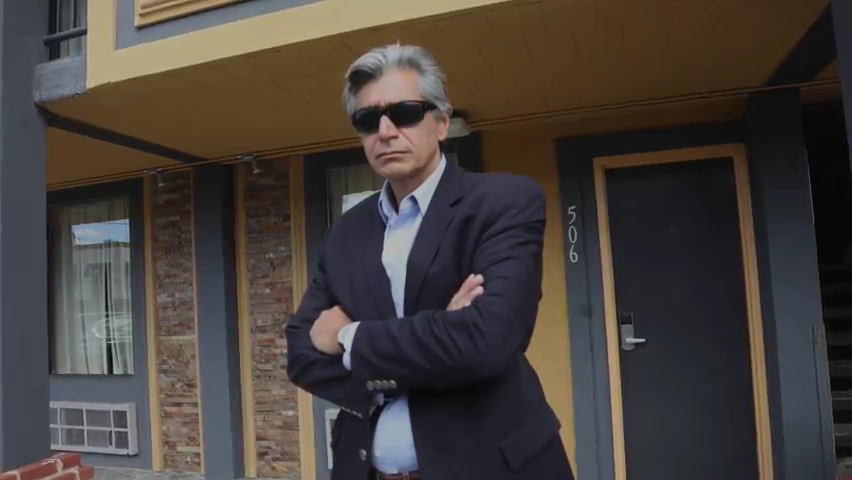
Former FBI agent Mark Rossini says that 9/11 could have been prevented
Former FBI agent Mark Rossini talks about the Sept. 11 hijackers’ movements in the U.S., including in New Jersey, and says that 9/11 could have been prevented.
Chris Pedota, NorthJersey.com
A long-simmering, explosive allegation that a cadre of Saudi Arabian government officials assisted the Islamist terrorists who carried out the 9/11 attacks two decades ago has found a new audience in an unlikely place.
One of the purported planners of the 9/11 plot, now awaiting a special military trial at the U.S. Naval Base in Guantanamo Bay, Cuba, has launched a behind-the-scenes effort to expose the so-called Saudi connection as a way to save himself from a possible death penalty.
Long regarded as one of the most perplexing 9/11 mysteries and debated by U.S. officials across four presidential administrations, the allegation that Saudi officials provided some sort of help to the team from Osama bin Laden’s al-Qaida network who carried out America’s deadliest terror attack has been an emotional and political sore spot.
Saudi Arabia has consistently and vehemently denied any connection to the suicide-hijackings of four commercial jetliners by bin Laden’s operatives on the morning of Sept. 11, 2001, that left nearly 3,000 people dead. Meanwhile, Presidents George W. Bush, Barack Obama, Donald Trump and Joe Biden all tried at various points to block or delay efforts to examine top-secret U.S. intelligence files on the Saudi allegations.
But recently declassified FBI investigative reports — many published by The Record and NorthJersey.com after 9/11 victims successfully pressured Biden in 2021 to release them — point to a series of suspicious connections between a handful of Sandi officials and several hijackers.
Some of the most alarming contacts involved hijackers who took up residence in North Jersey before 9/11, including opening bank accounts, renting cars and leasing apartments in Paterson and motel rooms in Wayne and South Hackensack.
Many of these declassified FBI reports are now fuel for a slow-moving lawsuit by thousands of 9/11 victims and their relatives in federal court in New York City who are demanding millions of dollars in compensation from Saudi Arabia. Whether those same FBI findings will emerge in key elements of the U.S. military commission trials at Guantanamo Bay, Cuba, remains to be seen, legal experts say.
But the fact that purported Saudi links to 9/11 may turn up during even the most low-level legal arguments at the Guantanamo terrorist proceedings indicates that the issue — and its mystery — will not disappear anytime soon.
“It drives home the need to really get this story right,” said Brett Eagleson, of Middletown, Connecticut, who lost his father in the 9/11 attacks and is now leading efforts to force Saudi Arabia to come clean.
A legal long shot?
The centerpiece of the latest debate over Saudi Arabia’s possible link to the attacks is a 21-page declaration — the equivalent of a sworn affidavit — compiled by an American investigator working for U.S. defense lawyers representing Ammar al-Baluchi.
Al-Baluchi, also known as Ali Abdul Aziz Ali, is one of five top al-Qaida lieutenants who were captured by the U.S. after the 9/11 attacks and sent to the sprawling U.S. Navy base at Guantanamo Bay for military trials modeled on those used to prosecute Nazi and Japanese war criminals after World War II.
But the Guantanamo trials have been delayed for years as U.S. authorities weigh a complex web of legal issues, including whether to use evidence compiled against the defendants during CIA torture sessions.
Al-Baluchi’s controversial torture by the CIA at a secret “black site” in Afghanistan known as the “Salt Pit” was depicted in the Oscar-winning film “Zero Dark Thirty,” which also chronicled the raid in May 2011 to kill bin Laden by U.S. Navy SEALs.
By introducing evidence that Saudi government officials assisted the 9/11 hijackers, legal experts say, al-Baluchi hopes to demonstrate that he should be spared execution because others — notably Saudi Arabian officials — also played key roles but have not been held accountable.
While it is considered a long shot by legal strategists, the declaration by Donald C. Canestraro, a former agent for the federal Drug Enforcement Administration who was hired by the Pentagon’s Office of Military Commissions to assist defense attorneys in interviewing potential witnesses and research, represents one of the most thorough compilations of evidence against Saudi officials.
The declaration, which was completed in July 2021, was not classified. Instead, it was posted with other legal documents on the Office of Military Commissions website.
But it attracted little attention outside the commission’s tight-knit legal circles until earlier this year, when an unredacted version was posted on the website SpyTalk. Soon after, another web-based news service known as the Florida Bulldog reported on the declaration’s findings.
Reached by phone in Ohio, Canestraro declined to speak in detail to The Record and NorthJersey.com about his two-year investigation of Saudi links to 9/11. He did confirm, however, that his research included interviews with 11 former FBI agents and two ex-CIA agents who monitored Saudi links to the 9/11 hijackers — in some cases before the attacks took place.
James Connell, a civilian attorney from Northern Virginia who was brought in by the military commission to represent al-Baluchi, assigned Canestraro to research the alleged Saudi links to 9/11. Connell, who represented Washington, D.C., sniper James Allen Mohammad, executed in 2009, and is considered an expert in death penalty cases, also declined to discuss the declaration’s revelations.
However, Connell, when reached by phone between meetings at the Guantanamo Bay naval base, confirmed that the declaration by Canestraro was part of a wider discovery motion by him to obtain more documents, including FBI investigative reports, about Saudi contacts with the 9/11 hijackers.
Those findings could prove to be not only explosive in the Guantanamo trials — if they are allowed by the judge as evidence — but also vital in the federal lawsuit in New York by 9/11 victims and their relatives.
Among the claims in Canestraro’s declaration:
- That the CIA — and its director at the time, George Tenet — deliberately withheld information before 9/11 from the FBI about a possible attack.
- That the CIA initially tried and failed to recruit several 9/11 hijackers — notably Khalid al-Mihdhar and Nawaf al-Hazmi — to spy on bin Laden and the al-Qaida network.
- That after the 9/11 attacks, perhaps embarrassed by its inability to deal with the growing al-Qaida threat, the CIA and even the FBI conspired to withhold information about the alleged Saudi links from the 9/11 Commission and other congressional investigations.
- That FBI agents who testified before the 9/11 Commission and the joint congressional inquiry were told by their superiors not to reveal the full extent of Saudi links to 9/11.
- That the much-praised National Commission on Terrorist Attacks Upon the United States — the 9/11 Commission, led by former New Jersey Gov. Tom Kean — deliberately did not fully pursue an investigation of purported Saudi connections and instead “limited” its staff from a deeper inquiry.
Reached by phone in New Jersey, Kean denied that the commission’s investigators held back on pursuing all leads against the Saudis. But he conceded that the commission’s work was somewhat limited because the FBI launched an even deeper investigation into Saudi allegations in the years after the commission released its report in 2004.
Those findings, part of the FBI’s “Operation Encore” inquiry, were completed in 2016 and partially declassified in 2021.
Kean said he supported efforts to continue investigations into the alleged Saudi links to 9/11. The latest revelations in Canestraro’s declaration, said Kean, “drives home the need to get this story right.”
Several years ago, Kean publicly urged President Biden to begin releasing classified U.S. investigative files on the alleged Saudi link to the 9/11 attacks. Just before the 20th anniversary of the attacks, Biden did just that. But Biden’s decision to reverse course and open secret files came only after 9/11 victims and their relatives threatened to protest his appearance at the 20th-anniversary ceremonies at the National 9/11 Memorial and Museum in lower Manhattan on Sept. 11, 2021.
Responding to the claims made in the Canestraro declaration, the 9/11 Commission’s executive director, Philip Zelikow, told The Record and NorthJersey.com that not only were the allegations of Saudi links to 9/11 fully investigated but that any notion of a CIA coverup is “scurrilous.”
Like many others who have analyzed the aftermath of 9/11, Zelikow, who served in the U.S. State Department and with the National Security Council before taking several academic posts and then supervising the 9/11 Commission staff, conceded that U.S. intelligence agencies missed several chances to stop the attacks before they took place. But soon after those attacks, he said, the CIA and the FBI, along with other U.S. intelligence agencies, dramatically increased efforts to improve American counterterror defenses.
“The same people who made these mistakes,” Zelikow said, “were the same people who discovered these mistakes and tried to rectify them.”
In a series of telephone interviews and email exchanges with The Record and NorthJersey.com, Zelikow, who also co-authored a 1995 book with former Secretary of State Condoleezza Rice on the post-Cold War reunification of Germany, specifically challenged the assertion in Canestraro’s declaration that 9/11 Commission staffers were blocked from investigating the Saudis. Zelikow said Canestraro based his erroneous claim on information from a commission staffer who had been fired before the bulk of the commission’s investigation into the Saudi links was completed.
Zelikow, now a history professor at the University of Virginia, who was not interviewed by Canestraro, described the unnamed commission staffer as “uninformed about what we did.”
Zelikow acknowledged, however, that he has come to believe that some Saudi officials had privately become radicalized Islamists and may have stepped out of their government roles to help the 9/11 hijackers in some way. Such a theory has gained wider acceptance among some terrorism experts in recent years as more evidence of Saudi links to 9/11 emerged.
At issue in the larger debate over the alleged Saudi links to 9/11 is whether these officials were acting with the approval or knowledge of their government. Zelikow clearly sides with those who believe that if Saudi officials helped the 9/11 hijackers, they did so on their own, not with the backing of the kingdom’s top officials.
“I think it’s important to talk about these people as individuals and not under the label as ‘Saudi officials,'” Zelikow said. “If they were helping al-Qaida, they were not acting as Saudi government officials. They would have been acting as underground rebels within their government, and there were such rebels on the vast Saudi public payroll.”
Zelikow also sought to dispel growing suspicions, based on declassified FBI reports, of a possible 9/11 link by Saudi Prince Bandar bin Sultan al Saud, the kingdom’s U.S. ambassador at the time of the 9/11 attacks and a close friend of President Bush.
Zelikow called Bandar, who met so often with Bush at the White House that he was nicknamed “Bandar Bush,” the “poster child of the kind of person al-Qaida hates.”
“He was at the top of the list they wanted to kill,” Zelikow said.
Subscriber exclusive: These records show a Paterson mystery man helped 9/11 hijackers | Mike Kelly
More: Tom Kean calls on Biden to release all secret files on possible Saudi links to the 9/11 attacks | Mike Kelly
‘This could have been prevented’
Canestraro noted in his declaration that he also interviewed former Deputy National Security Advisor Richard Clarke and former Sen. Bob Graham, the Florida Democrat who co-chaired the Congressional Joint Inquiry into 9/11, which preceded the 2004 report by the 9/11 Commission.
Only Clarke and Graham are quoted by name in Canestraro’s declaration. The FBI and CIA agents are designated as “CS” — confidential sources — with a number to differentiate them.
But former FBI Agent Mark Rossini, who was assigned as the bureau’s liaison to a special CIA task force investigating bin Laden before the 9/11 attacks, confirmed that he was one of Canestraro’s sources.
Reached by phone at his home in Spain, Rossini told The Record and NorthJersey.com that the declaration recounts his claim that the CIA blocked him from alerting his FBI superiors in the months leading up to 9/11 that bin Laden’s operatives were about to conduct an attack on U.S. soil.
“The issue is the CIA and the Saudis have to have some responsibility for allowing this to happen,” said Rossini, who left the FBI in 2008 after he was accused of illegally accessing confidential documents in a case unrelated to 9/11.
“Yes, the terrorists did what they did, but this could have been prevented,” said Rossini, who says he still blames himself for not violating CIA commands about secrecy with the so-called “Alec Station” unit that tracked al-Qaida and bin Laden and alerting the FBI about a possible attack.
At the heart of Rossini’s story is the CIA’s refusal to tell the FBI that two known al-Qaida operatives — Khalid al-Mihdhar and Nawaf al-Hazmi — had arrived in Los Angeles in early 2000 to prepare for the 9/11 attacks.
Al-Mihdhar and al-Hazmi were met in Los Angeles by two Saudis with links to the kingdom’s intelligence services. According to Canestraro’s declaration, the CIA was attempting to use the Saudi contacts to recruit al-Mihdhar and al-Hazmi as spies who would then report on al-Qaida’s plans. But that recruitment plan — so far, unconfirmed by the CIA — never materialized.
Later, when al-Mihdhar and al-Hazmi traveled east — first to Virginia, then to New Jersey — they reportedly received help from a Saudi Embassy official and a Paterson resident known as “the Syrian.”
The Record and NorthJersey.com first broke the story about “the Syrian,” who went from working as a gas station attendant in Paterson to personally helping al-Mihdhar and al-Hazmi find apartments in New Jersey.
Al-Mihdhar and al-Hazmi both died on the hijacked jetliner that crashed into the Pentagon on 9/11.
It’s not clear when the military commission trials will begin in Guantanamo Bay. A number of pretrial hearings are scheduled in the coming months.
Meanwhile, the long-running lawsuit by 9/11 victims and relatives continues to grind through its own set of pretrial motions and hearings in a federal court in Manhattan. Many victims and their relatives fear that the passage of time will cause the rest of America to lose interest or merely forget that such a great mystery still hovers over the nation’s deadliest terror attack.
“It’s not really news to me,” Terry Strada said about the allegations against Saudi Arabia.
Strada, who now leads a national coalition of victims fighting to hold Saudi Arabia accountable, was at home in Basking Ridge, New Jersey, on the morning of Sept. 11, 2001, after giving birth four days earlier to a baby boy. Around 9 a.m., her husband, Tom, an executive with the Cantor Fitzgerald financial services firm, called from his office on the 104th floor of the north tower of the World Trade Center in lower Manhattan, to say a plane had struck the building.
Tom Strada died in the collapse of the trade center’s twin towers. Now Terry Strada views the disclosures of possible Saudi links to that attack as a final piece in her two-decade effort to find the truth. Nonetheless, the revelations in the Canestraro declaration did not surprise her.
“I didn’t find the news shocking,” Strada said. “I just found it to be disheartening.”
Mike Kelly is an award-winning columnist for NorthJersey.com, part of the USA TODAY Network, as well as the author of three critically acclaimed non-fiction books and a podcast and documentary film producer. To get unlimited access to his insightful thoughts on how we live life in the northeast, please subscribe or activate your digital account today.
Email: kellym@northjersey.com
